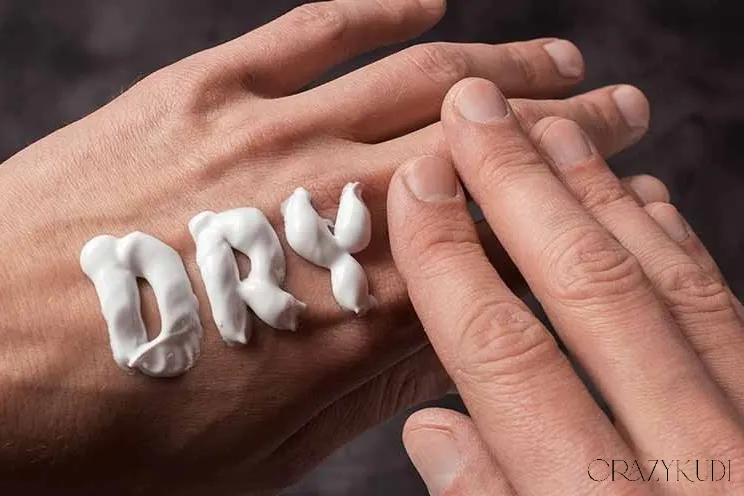Dealing with dry skin can be uncomfortable, especially when it leads to itching, flakiness, and tightness. It’s important to understand that dry skin can be caused by a variety of factors, some of which may be within your control, while others are environmental or genetic. Understanding these causes will help you take better care of your skin and prevent the discomfort that comes with it.
In this blog, we’ll explore 7 common causes of dry skin and provide tips on how to treat and prevent it.
1. Cold Weather and Low Humidity
One of the most common causes of dry skin is cold weather combined with low humidity. When the air is cold and dry, it can strip your skin of its natural moisture, leaving it feeling rough and dehydrated. This is particularly common in the winter months when both the outdoor air and indoor heating systems contribute to low humidity.
Why It’s Important:
- Decreases moisture retention: Dry air pulls moisture from your skin, leading to a loss of hydration.
- Leads to irritation: Skin becomes more prone to irritation and cracking due to the lack of moisture.
Tip:
Use a humidifier indoors to add moisture to the air, and apply a thick, emollient-rich moisturizer to your skin after showering to lock in hydration.
2. Hot Showers or Baths
While a long, hot shower may feel soothing, it can actually strip your skin of its natural oils, leading to dry and irritated skin. Hot water removes the lipids that help your skin retain moisture, leaving it vulnerable to dehydration.
Why It’s Important:
- Disrupts skin barrier: Hot water disrupts the skin’s natural barrier, which protects it from moisture loss.
- Exacerbates dryness: Prolonged exposure to hot water increases the likelihood of developing flaky, tight skin.
Tip:
Take lukewarm showers instead of hot ones and limit shower time to 10–15 minutes. Follow up with a rich moisturizer to replenish lost moisture.
Also read: Here’s Why Sleeping With Makeup On Is Bad – The Importance of Removing Makeup Before Bed
3. Over-Washing Your Skin
Excessive washing or cleansing can dry out your skin, especially when you use harsh soaps or cleansers. The skin’s natural oils are crucial for maintaining hydration and protecting against environmental factors. Over-washing can disrupt this balance, leading to dry skin.
Why It’s Important:
- Strips natural oils: Washing too frequently or with harsh cleansers removes oils essential for skin hydration.
- Disrupts skin’s pH: Over-washing can also disturb the skin’s natural pH balance, leading to dryness and irritation.
Tip:
Use a gentle, hydrating cleanser and wash your face no more than twice a day. Avoid scrubbing too hard and ensure your cleanser is suited for dry or sensitive skin.

4. Skin Conditions (Eczema, Psoriasis, etc.)
Certain skin conditions, such as eczema and psoriasis, are characterized by dry, inflamed skin. These conditions disrupt the skin’s barrier function, leading to moisture loss. People with these conditions often experience itchiness, redness, and flaky skin.
Why It’s Important:
- Impaired skin barrier: Conditions like eczema and psoriasis impair the skin’s ability to retain moisture.
- Chronic dryness: These conditions lead to persistent dry patches, especially during flare-ups.
Tip:
For skin conditions like eczema or psoriasis, consult with a dermatologist for targeted treatment. Topical creams or corticosteroids can help manage dryness and irritation.
Also read: Essential Tips for Taking Care of Sensitive Skin
5. Aging
As you age, your skin’s natural ability to produce oil and retain moisture declines. Older skin tends to be more prone to dryness because the sebaceous glands produce less sebum (the skin’s natural oil). This can lead to a rougher texture and increased sensitivity.
Why It’s Important:
- Decreased oil production: Aging reduces the skin’s natural oil production, leaving it more prone to dehydration.
- Thin skin: Older skin tends to be thinner and less resilient, making it more susceptible to environmental damage.
Tip:
Use a rich, hydrating moisturizer and incorporate products containing retinol or hyaluronic acid to boost skin hydration and stimulate collagen production.
6. Medications
Certain medications, such as diuretics, antihistamines, and retinoids, can cause dry skin as a side effect. These medications may alter the balance of moisture in your skin, leading to increased dryness, flakiness, and irritation.
Why It’s Important:
- Affects skin hydration: Medications can reduce the skin’s ability to retain moisture.
- Dryness as a side effect: Certain medications dehydrate the body, which can in turn affect the skin.
Tip:
If you suspect that your medications are contributing to dry skin, consult your doctor or pharmacist. They may recommend adjusting your dosage or switching to a different medication.

7. Dehydration
Dehydration is another common cause of dry skin. When your body lacks sufficient water, it can show on your skin, leaving it looking parched, flaky, and dull. Inadequate hydration from the inside out can compromise the skin’s natural moisture levels.
Why It’s Important:
- Skin dehydration: Without enough water, your skin loses its natural plumpness and elasticity.
- Dryness: Dehydrated skin can feel tight and appear flaky, even if you’re using moisturizers on the surface.
Tip:
Drink plenty of water throughout the day to keep your skin hydrated from the inside out. You can also include hydrating foods like watermelon, cucumber, and citrus fruits in your diet.
Also read: Charcoal Mask – The Holi Skin Care Essential You Need
Final Thoughts: How to Combat Dry Skin
Dry skin can be caused by a variety of factors, but understanding the root cause is the first step in addressing it. Whether it's due to environmental conditions, skin conditions, or lifestyle habits, the good news is that dry skin can be treated with the right care.
To combat dry skin, make sure you are using hydrating skincare products, maintaining a balanced lifestyle, and protecting your skin from harsh environmental factors. With the right approach, you can keep your skin soft, smooth, and well-hydrated all year round.

